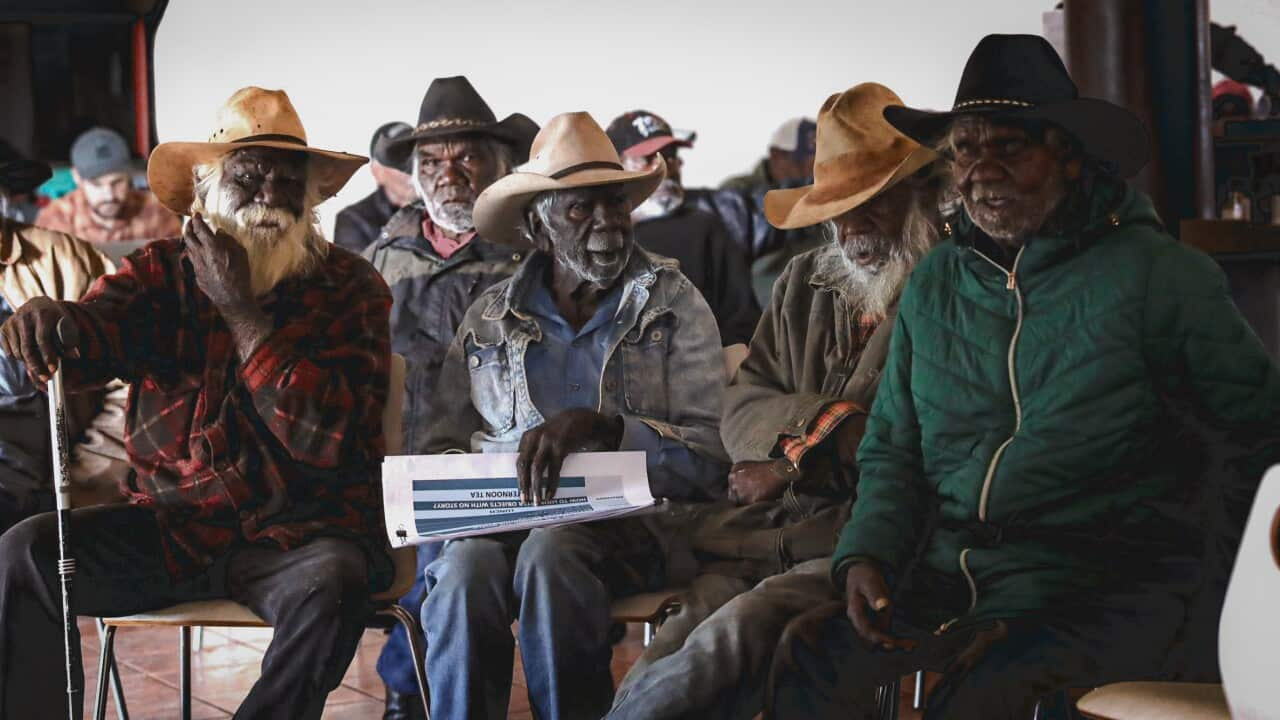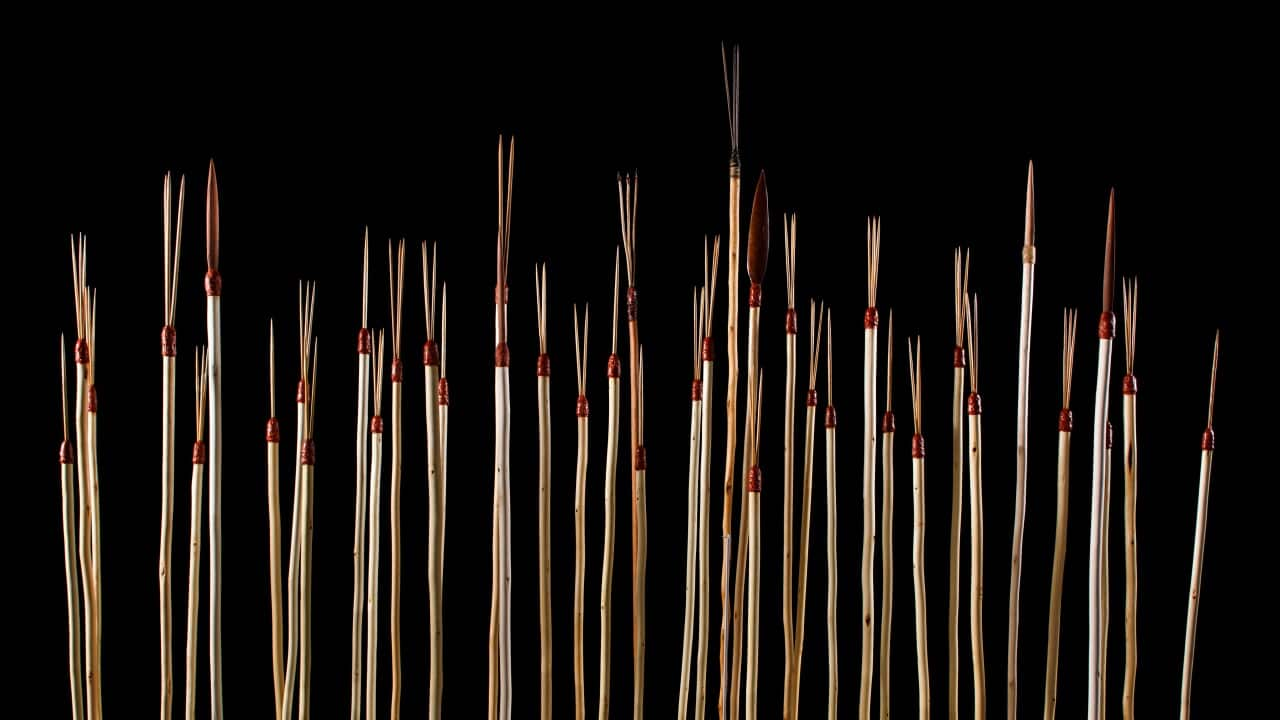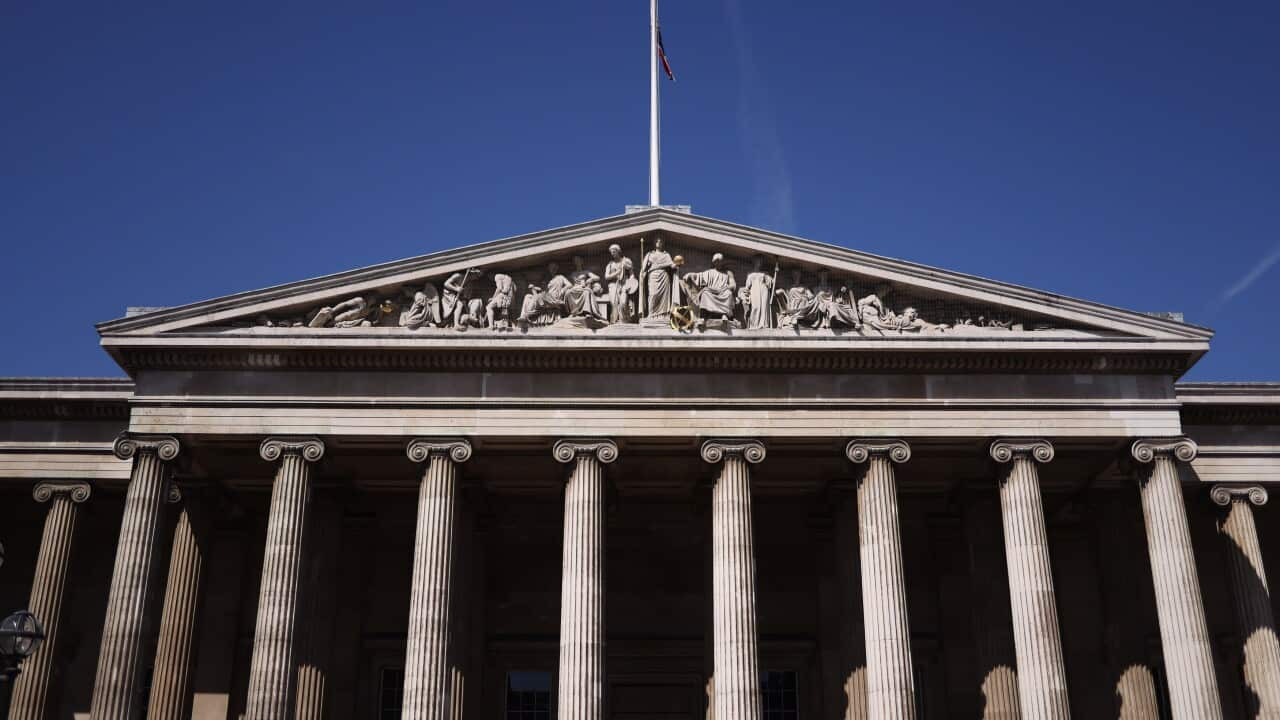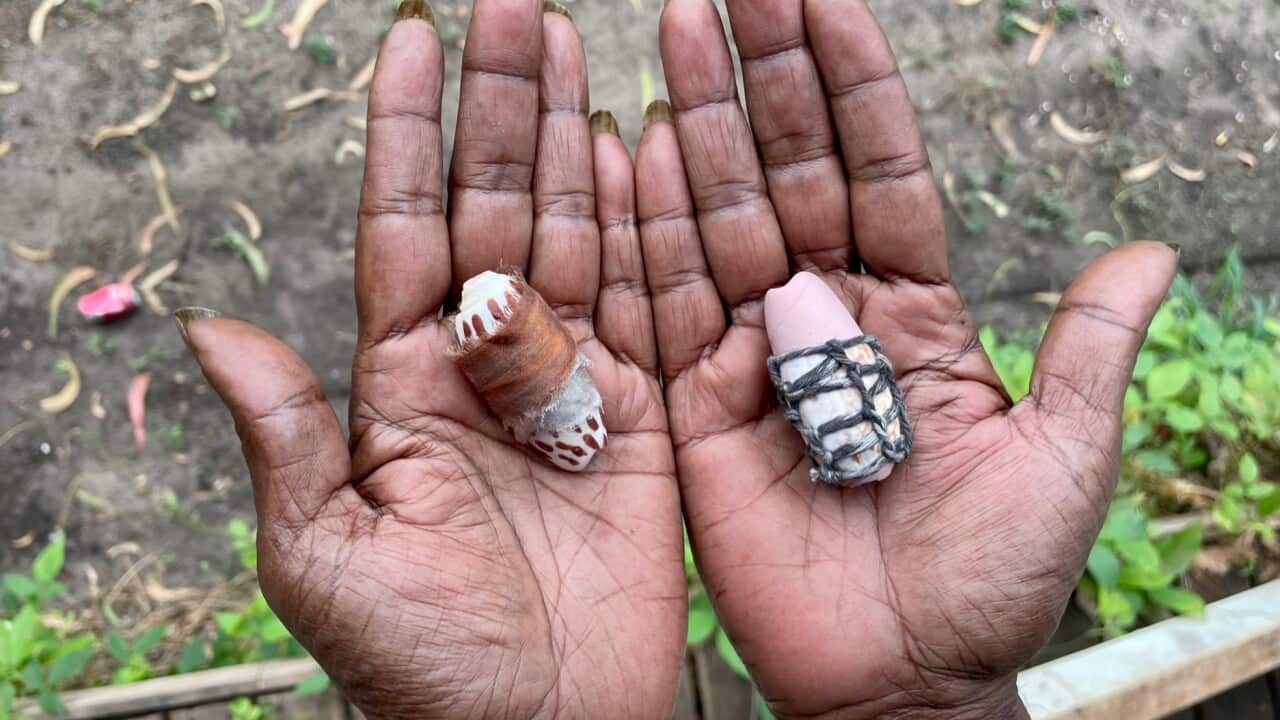Over 50 Aboriginal men have gathered to discuss the return of sacred objects to Traditional Owners across Central Australia.
The gathering, at Tilmouth Well in the Northern Territory, brought together ceremonial leaders from Arrernte, Alyawarr, Anmatyerr, Luritja, Ngaanyatjara, Pintupi, Pitjantjatjara, and Warumungu language/cultural groups.
Together, they discussed the return of sacred men's objects stored in international institutions.
The men constructed a statement to said institutions, asking for the return of the objects and recommendations on how they can be delivered to their homelands in a culturally safe and respectful manner.
"All men's sacred objects from Central Australia should return to Central Australia," they wrote.

The meeting brought together ceremonial leaders from across Central Australia. Credit: AIATSIS
However, would require funding and support to care for the objects and return them to their communities.
The men are also lobbying for the establishment of an Aboriginal Men's Cultural Centre in Central Australia where the items can be housed and researched with the guidance of Traditional Owners and cultural knowledge holders.
The group also requested smaller keeping places established in communities for the items so they remain close to Country and community.
They've requested these centres be controlled by Central Australian men according to cultural Law, and employ Elders and young men.
"This is urgent," they wrote.
"This must happen now because our Elders are getting older.
Our Law and culture is strong and still practices today. If this doesn't happen our knowledge will be lost forever when our Elders pass away.
The men emphasised the importance of the items in transferring cultural knowledge to the next generation.
"We must teach our young sons and grandsons so that our culture continues for future generations," they wrote.

A vote on whether unprovenanced sacred objects need to come back to Central Australia. Credit: AIATSIS
Supported by the Central Land Council, the research team consulted over 80 senior and middle-aged men in homelands about the management of the sacred men's items once they were repatriated.
This will support the repatriation of the items to their rightful communities which is set to be a challenge as early collectors made poor records.
With the wishes of the Central Australian men guiding the research, the team is now developing cultural frameworks, made with respect to Aboriginal Law, that can ease repatriation efforts.
This framework will be issued to museums across the globe along with the men's statement.




